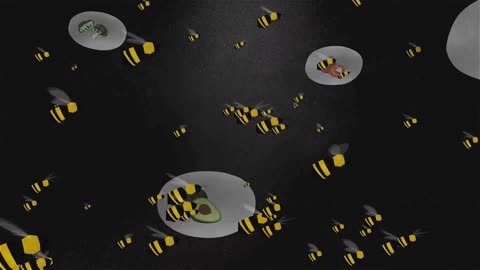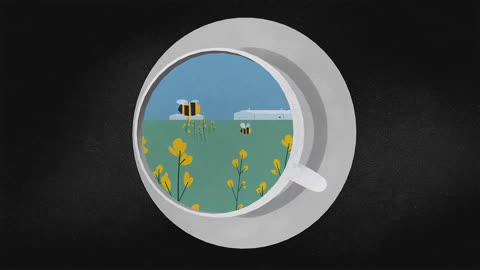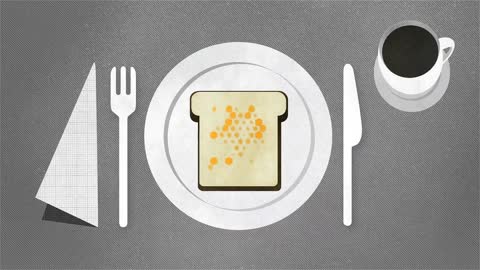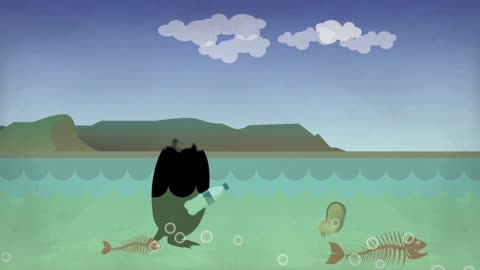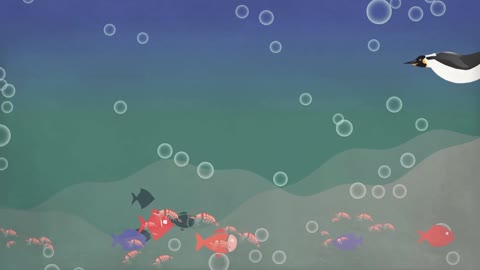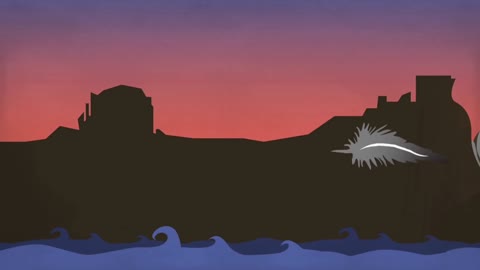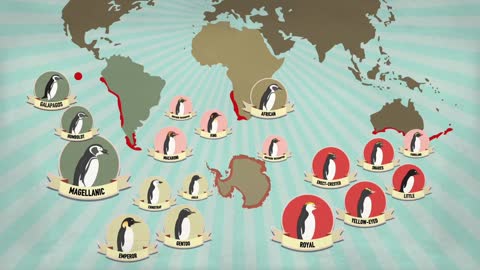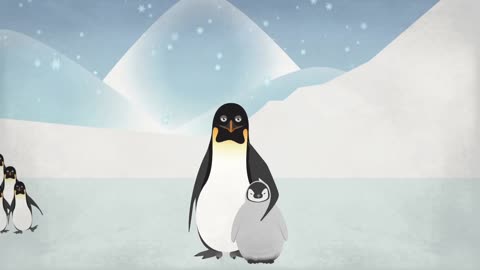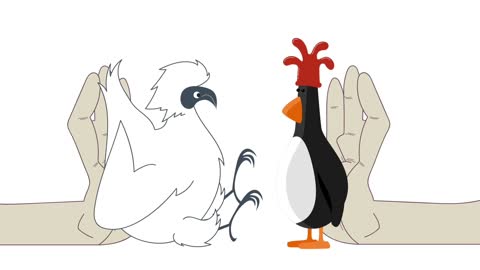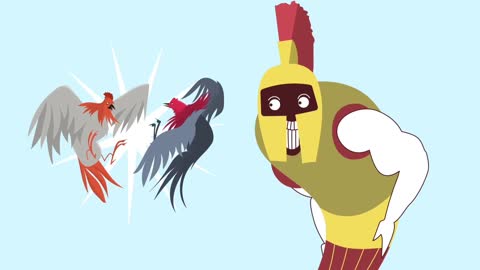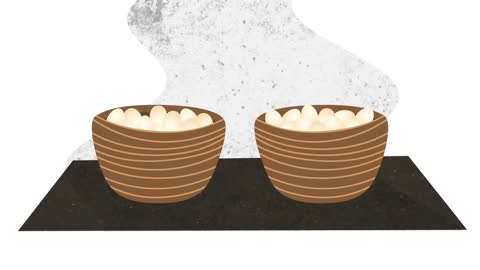Exhibit C: Chemicals.
Exhibit C: Chemicals.Pesticides used both on commercial beehives and agricultural crops to ward off parasites could be getting into the food and water that honeybees consume.Researchers have even found that some pesticides damage the honeybees' homing abilities.So we have a file full of clues but no clear leads.In reality, scientists,the actual detectives on this case,face disagreement over what causes colony collapse disorder.For now, we assume that several factors are the cause.Honeybees aren't necessarily in danger of extinction,but fewer bees overall means less pollination and higher food costs,so it's crucial that scientists solve the case of the vanishing bees.Because while having less honey might be a buzzkill,crop shortages are something that would truly sting.
8.89K
views
So how can we find the culprits behind this disaster?
So, how can we find the culprit behind this calamity?Here are three of the possible offenders.Exhibit A: Pests and Disease.Most infamous is the varroa mite,a minuscule red pest that not only invades colonies and feeds on bees,but also transfers pathogens that stunt bee growth and shortens their life span.Exhibit B: Genetics.The queen is the core of a healthy hive.But nowadays, the millions of queen bees distributed in commercial hives are bred from just a few original queens,which raises the worry about a lack of genetic diversity which could weaken bees' defenses against pathogens and pests.
5.29K
views
Beekeepers have occasionally reported mass disappearances since the 19th century.
Since the 19th century,beekeepers have reported occasional mass disappearances,giving them enigmatic names like disappearing disease,spring dwindle disease and autumn collapse.But when in 2006 such losses were found to affect more than half of all hives in the US,the phenomenon got a new name:colony collapse disorder.The most frightening thing about this mystery isn't that we'll have to go back to using regular sugar in our tea.We farm bees for their honey,but they also pollinate our crops on an industrial scale,generating over 1/3 of America's food production this way.
7.69K
views
Disease parasites or starvation a typical crime scene.
disease, parasites or starvation.A typical crime scene has almost no adult bees left in the hive,except, perhaps, a lonely queen and a few other survivors.It's full of untouched food stores and a brood of unborn larvae,suggesting that the adults vacated without waiting for them to hatch.But what's particularly eerie is that there's no tell-tale mass of dead or dying bees nearby.Either they have forgotten their way back to the hive,or they have simply disappeared.These mysterious disappearances aren't new.Humans have been collecting honey for centuries.But it wasn't until European settlers in the 1600's introduced the subspecies,Apis mellifera,that we domesticated bees.
7.59K
views
It's an environmental puzzle that begins with a seemingly trivial detail.
There is an environmental mystery afoot,and it begins with a seemingly trivial detail that reveals a disaster of global proportions.One day, you notice that the honey you slather on your morning toast is more expensive.Instead of switching to jam,you investigate the reason for the price hike.What you find is shocking.The number of domesticated mhoneybees in the US has been decreasing at an alarming rate.This decline appears too big to be explained by the usual causes of bee death alone:
7.6K
views
We've seen a 90 percent decline in most penguin species around the world.
Unfortunately, 15 of the 18 penguin species are currently listed as threatened, near-threatened, or endangered by the International Union for Conservation of Nature. In the last several decades, we have seen the world populations of most penguin species decline by up to 90%, with two of them, the Yellow-eyed and Galapagos penguins, down to just a few thousand birds. Penguins are an indicator species, the proverbial "canary in the coal mine." Simply put, if penguins are dying, it means our oceans are dying.
7.63K
views
Although humans may be the penguins' biggest threat.
Even though humans may be the greatest threat to penguins, we are also their greatest hope. Many research and conservation projects are underway to protect penguin habitats and restore vulnerable populations. With a little help from us and some changes in the practices that impact our planet and oceans, there is hope that our tuxedo-clad friends will still be around in the next century.
7.67K
views
There have also been several large oil spills over the past 50 years.
There have also been several large-scale oil spills over the past 50 years that have killed or impacted tens of thousands of penguins around the world. But the two major threats to penguins today are global warming and overfishing. Global warming impacts penguins in multiple ways, from interrupting the production of krill due to decreased sea ice formation in the Antarctic, to increasing the frequency and severity of storms that destroy nests, to shifting the cold water currents carrying the penguins' prey too far away from penguin breeding and foraging grounds.
7.63K
views
Sadly, most of this decline is due to human activity.
And sadly, most of this decline is attributable to human activities. Historically, penguins have had to deal with multiple disturbances. The mass collection of penguin eggs and the harvesting of the seabird guano they nested in caused the dramatic decline of several penguin species. If you're wondering what humans would want with seabird poop, it was used as an ingredient in fertilizer and in gunpowder, being so valuable that in the 19th century, it was known as white gold. Current threats to penguins include the destruction of both marine and terrestrial habitats, introduced predators, entrapment in fishing nets, and pollution from plastics and chemicals.
7.72K
views
This is despite penguins spending 75% of their lives at sea.
Although penguins spend 75% of their lives at sea, they must come to shore every year to reproduce and to molt their feathers. They do this in a variety of places, from the temporary ice sheets of the Antarctic to the beaches of South Africa and Namibia, to the rocky shores of subantarctic islands, to the craggy lava surfaces in the Galapagos. Different penguin species have different nesting practices. Some dig burrows into dirt, sand, or dried guano; some nest in tussock grasses; some build nests out of small rocks, sticks, and bones; while others don't build any nests at all. Although most penguins lay a clutch of two eggs, the two largest species, the King and the Emperor, lay a single egg that they incubate on top of their feet for approximately two months.
7.67K
views
But contrary to popular belief, they are not limited to cold regions.
But contrary to popular belief, they are not restricted to cold regions nor are there any at the North Pole. In fact, only 4 of the 18 penguin species regularly live and breed in Antarctica. Most penguins live in subtemperate to temperate regions. And the Galapagos penguin even lives and breeds right near the equator off the coast of South America. They are also found in South Africa, Namibia, Australia, and New Zealand, as well as on a number of islands in the southern Atlantic, Pacific, Indian, and Antarctic Oceans.
7.65K
views
First, they're one of the few birds that can't fly.
For one thing, they are one of the few bird species that cannot fly, having evolved from flight-capable birds about 60 million years ago. Surprisingly, their closest living relative is the albatross, a bird known for its enormous wingspan and extraordinary soaring abilities. It may seem strange that losing the ability to fly would be an evolutionary advantage, but the penguin's short, flipper-like wings and solid bones allow them to swim faster and dive deeper than any other bird on Earth, filling an ecological niche that no other bird can. Penguins inhabit the southern hemisphere, being one of the few bird species able to breed in the coldest environments.
7.63K
views
Penguins have long captured the imagination and hearts of people around the world.
Penguins have long captured the imagination and the hearts of people the world over. But while popular culture depicts them as clumsy, adorable birds with endlessly abundant populations, the truth is that penguins are exceedingly graceful, often ornery, and their populations are in rapid free fall. Their real life situation is far more precarious than people think. And if current trends do not change, it may not be long before penguins can only be found in movies. There are many things about penguins that make them odd birds, so to speak.
7.62K
views
Most of the more than 22 billion chickens in the world today are factory farmed.
Since then, numerous breeding initiatives have made chickens bigger and meatier, and allowed them to lay more eggs than ever. Meanwhile, chicken production has shifted to an industrial, factory-like model, with birds raised in spaces with a footprint no larger than a sheet of paper. And while there’s been a shift towards free-range farming due to animal rights and environmental concerns, most of the world’s more than 22 billion chickens today are factory farmed. From gladiators and gifts to the gods, to traveling companions and research subjects, chickens have played many roles over the centuries. And though they may not have come before the proverbial egg, chickens’ fascinating history tells us a great deal about our own.
7.55K
views
But the chicken's greatest contribution to science is yet to come.
But the chicken’s greatest contribution to science was yet to come. In the early 20th century, a trio of British scientists conducted extensive crossbreeding of chickens, building on Gregor Mendel’s studies of genetic inheritance. With their high genetic diversity, many distinct traits, and only 7 months between generations, chickens were the perfect subject. This work resulted in the famous Punnett Square, used to show the genotypes that would result from breeding a given pairing.
7.56K
views
Over the next few centuries, chickens followed humans wherever they went.
Over the next few centuries, chickens accompanied humans wherever they went, spreading throughout the world through trade, conquest, and colonization. After the Opium Wars, Chinese breeds were brought to England and crossed with local chickens. This gave rise to a phenomenon called “Hen Fever” or “The Fancy”, with farmers all over Europe striving to breed new varieties with particular combinations of traits. This trend also caught the attention of a certain Charles Darwin, who wondered if a similar selective breeding process occurred in nature. Darwin would observe hundreds of chickens while finalizing his historic work introducing the theory of Evolution.
7.46K
views
Around the same time the Egyptians were hatching eggs.
Around the same time as Egyptians were incubating eggs, Phoenician merchants introduced chickens to Europe, where they quickly became an essential part of European livestock. However, for a long time, the chicken’s revered status continued to exist alongside its culinary one. The Ancient Greeks used fighting roosters as inspirational examples for young soldiers. The Romans consulted chickens as oracles. And as late as the 7th Century, the chicken was considered a symbol for Christianity.
7.49K
views
When a hen incubates her eggs naturally, she stops laying new ones.
When a hen naturally incubates eggs, she will stop laying new ones and sit on a “clutch” of 6 or more eggs for 21 days. By the middle of the 1st millennium BCE, the Egyptians had learned to artificially incubate chicken eggs by placing them in baskets over hot ashes. That freed up hens to continue laying daily, and what had been a royal delicacy or religious offering became a common meal.
7.46K
views
The earliest domestic chickens date back at least 7,000 years.
The earliest domesticated chickens, dating at least back to 7,000 years ago, weren’t bred for food, but for something considered less savory today. The aggressiveness of breeding males, armed with natural leg spurs, made cockfighting a popular entertainment. By the second millennium BCE, chickens had spread from the Indus Valley to China and the Middle East to occupy royal menageries and to be used in religious rituals. But it was in Egypt where the next chapter in the bird’s history began.
7.4K
views
Bamboos in the area produce large amounts of fruit only once every few decades.
The region’s bamboo plants produce massive amounts of fruit just once every few decades. Junglefowls’ ability to lay eggs daily may have evolved to take advantage of these rare feasts, increasing their population when food was abundant. This was something humans could exploit on a consistent basis, and the birds’ weak flight capabilities and limited need for space made them easy to capture and contain.
7.36K
views
The chronicle of Thutmose Il, king of ancient Egypt, describes a wonderful foreign bird.
The annals of Ancient Egyptian king Thutmose III described a marvelous foreign bird that “gives birth daily.” Zoroastrians viewed them as spirits whose cries told of the cosmic struggle between darkness and light. Romans brought them on their military campaigns to foretell the success of future battles. And today, this bird still occupies an important, though much less honorable position – on our dinner plates. The modern chicken is descended primarily from the Red Junglefowl, and partially from three other closely related species, all native to India and Southeast Asia.
9.51K
views
